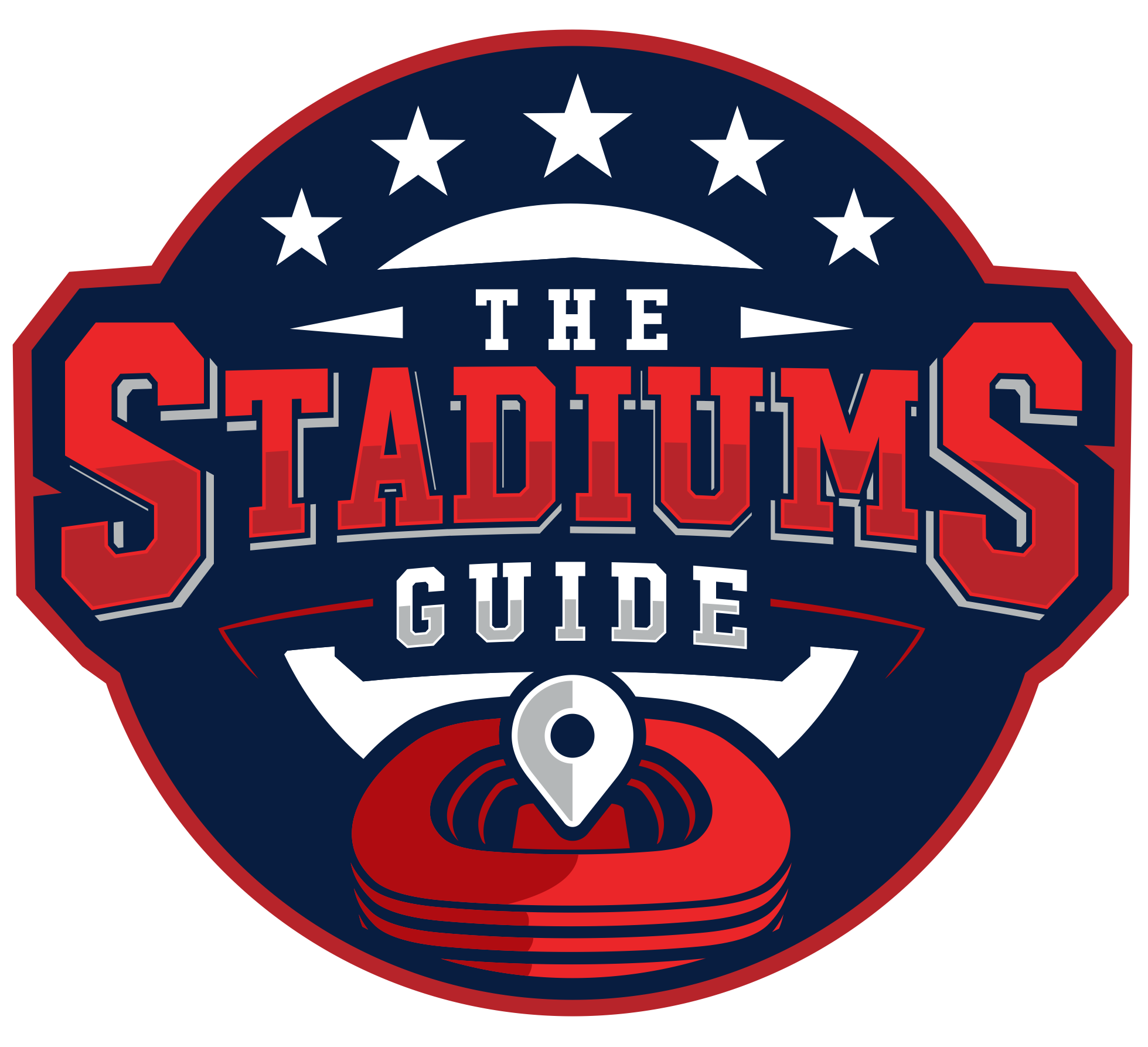Nestled in the heart of Augsburg, Bavaria, the WWK Arena proudly stands as the home stadium of FC Augsburg. This modern football stadium, which opened in 2009, boasts a seating capacity of 30,660, including 11,034 standing spaces. Renowned for the electrifying atmosphere that fans generate during matches, the arena has rapidly become an iconic symbol of the city’s thriving football culture.
As the primary venue for FC Augsburg’s home matches, the WWK Arena hosts numerous heated encounters throughout the football season. It gained international attention in February 2016, when it served as the site for a historic Europa League round of 32 first leg clash between FC Augsburg and Liverpool. With its unique blend of passion, team spirit, and dedicated fanbase, the WWK Arena is undoubtedly the heart and soul of FC Augsburg.
History of WWK Arena

The WWK Arena, located in Augsburg, Bavaria, Germany, is the home stadium for FC Augsburg. Initially, FC Augsburg played their games at the Rosenaustadion before the need for a new stadium arose. As a modern and sustainable sporting venue, the WWK Arena has since become an essential part of the club’s identity and success.
Construction of the WWK Arena started in 2007, and the stadium was completed in 2009. FC Augsburg wasted no time in inaugurating their new home on July 26th, 2009, with a friendly match against an all-star team from the region. It ended in a 2-0 victory for FC Augsburg and marked the start of a new era for the club.
The first competitive match at the WWK Arena took place during the 2009/10 2. Bundesliga season. On matchday 6, FC Augsburg took on Hansa Rostock and secured their first home win at the new stadium. The success on the field eventually led the club to the Bundesliga, Germany’s top professional football league.
With a seating capacity of 30,660, the WWK Arena offers a vibrant and engaging atmosphere for fans and players alike. In the 2019-20 Bundesliga season, the stadium boasted an average attendance of 28,709, which equated to a remarkable 93.6% of its total capacity. The design of the stadium delivers a single-tier configuration, enhancing the spectator experience and creating a sense of unity among fans.
In summary, the WWK Arena has played a significant role in FC Augsburg’s ongoing journey and success in German football. As a modern, sustainable, and fan-friendly stadium, it stands as a proud testament to the club’s progress and aspirations.
Architectural Design

Capacity and Structure
The WWK Arena, located in Augsburg, Bavaria, Germany, is the home stadium of FC Augsburg. This modern football stadium has a capacity of 30,660 with 19,060 seats and standing room for 11,034. A potential second phase of construction could expand its capacity to 49,000 in the future.
Designed by Bernhard & Kögl, the stadium construction was completed in 2009 with a budget of €45 million. The main contractor for the project was HBM Stadien- und Sportstättenbau GmbH. The arena features a contemporary design that conforms to the rules of the German football association for professional football.
Field Specifications
As a football-specific stadium, the WWK Arena hosts a natural grass pitch measuring 105 x 68 meters, which adheres to the standard dimensions of a professional football field. The field’s advanced drainage and irrigation systems ensure optimum playing conditions throughout the year. Additionally, the stadium features a modern lighting system that illuminates the pitch for night matches and televised events, providing players and viewers with an optimal experience.
Features
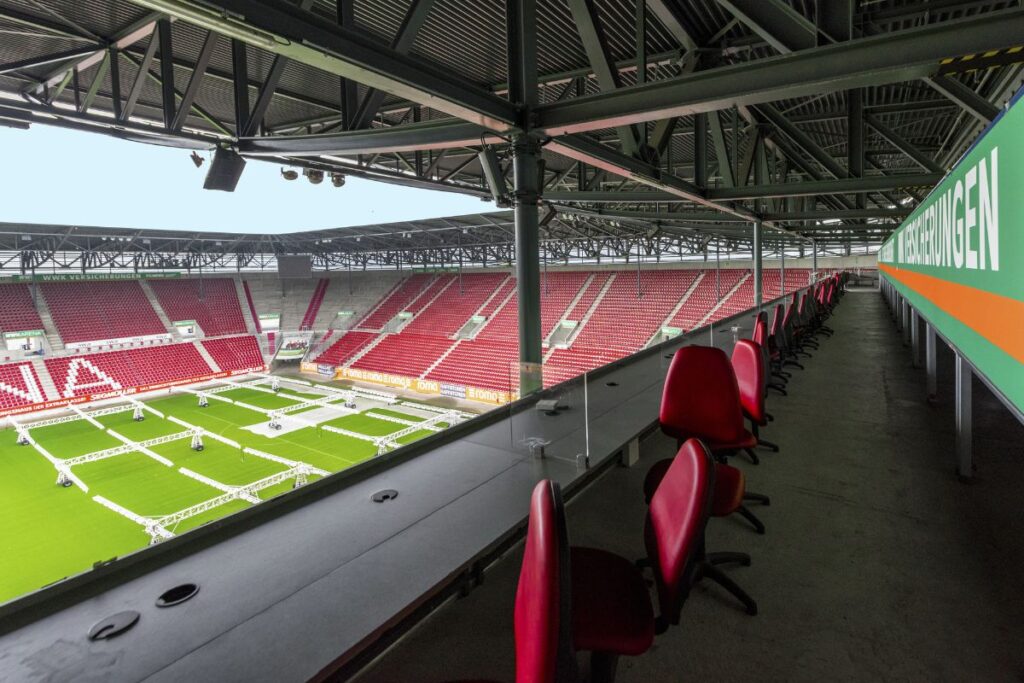
Convenience Facilities
The WWK Arena offers convenience facilities for fans to enjoy the game in comfort. With a capacity of 30,660 spectators, the stadium is divided into four parts: Stehbereich Heimfans (North), Gegengerade (East), Tribune Sud, and Haupttribune (West) to provide the audience with different seating options. Furthermore, the arena is equipped with modern amenities such as food and beverage outlets, restrooms, and merchandise shops, ensuring that visitors have a pleasant overall experience during the matches.
Technological Advancements
Technological advancements have played an important role in enhancing the matchday experience at the WWK Arena. The stadium is well-equipped with modern audio and video systems to ensure clear and accurate announcements, as well as a large scoreboard to keep fans informed about the game progress. Additionally, innovative LED lighting solutions are used to create a distinct atmosphere and add visual appeal, both inside and outside the venue. The integration of advanced technology not only elevates the experience for fans but also contributes to maximizing the stadium’s potential as a versatile event space.
Events Hosted
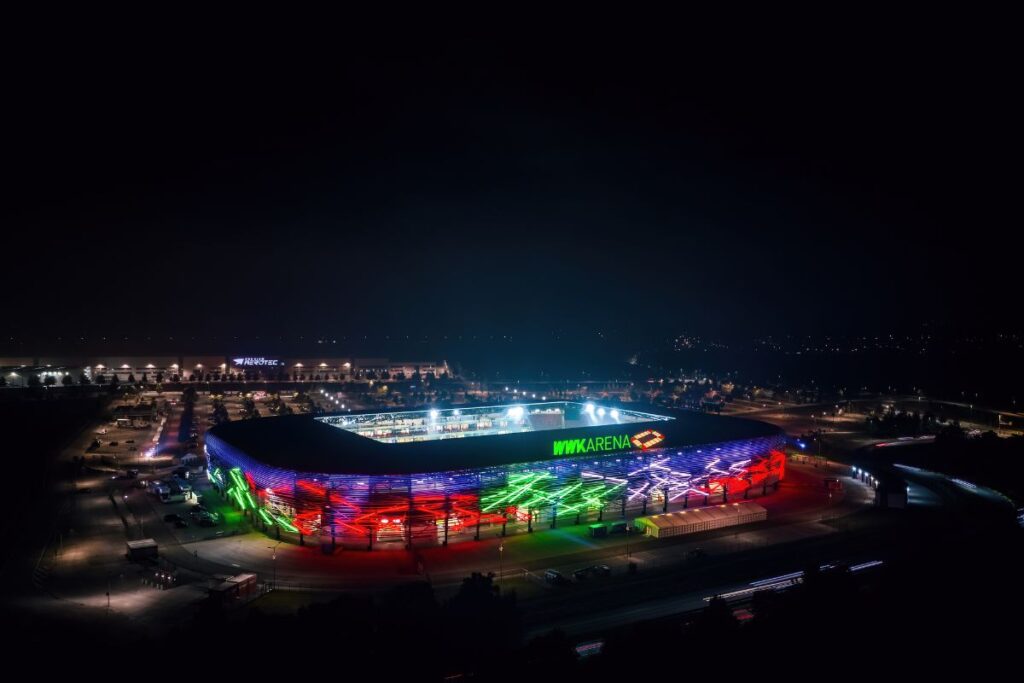
Regular Football Matches
The WWK Arena, located in Augsburg, Germany, primarily hosts regular football matches for its home team, FC Augsburg. The stadium was opened in 2009, and since then, it has consistently been a venue for competitive and high-quality Bundesliga matches. With a capacity of 30,660 spectators, including 11,034 standing spaces, the WWK Arena ensures a passionate and energetic atmosphere for local and visiting fans alike.
International Tournaments
While primarily hosting FC Augsburg’s home matches, the WWK Arena has also been a venue for notable international tournaments. On a few occasions, the stadium has been chosen to host matches for other competitions, such as the illustrious Europa League. In February 2016, WWK Arena hosted the Europa League round of 32 first leg between FC Augsburg and Liverpool at their home. This event demonstrates the caliber of matches that the WWK Arena is capable of hosting and further cements its reputation as a prominent football stadium in Europe.
Home Team: FC Augsburg
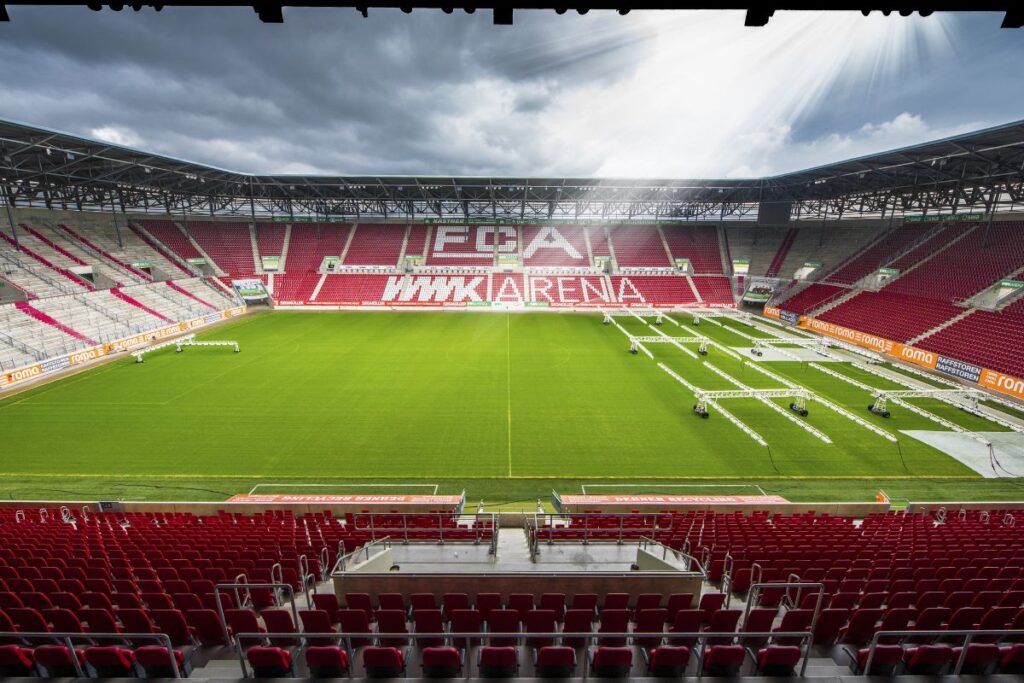
Wins and Achievements
FC Augsburg has had its fair share of successes. In recent history, they finished 5th in the Bundesliga during the 2014-2015 season, which secured them a spot in the UEFA Europa League for the first time in the club’s history. In the 2015-2016 Europa League, they reached the round of 32, showing their competence on the European stage.
Prominent Players
Throughout the years, FC Augsburg has seen several notable players grace the WWK Arena pitch. Some influential players include:
- Andreas Luthe: A dependable goalkeeper who played for Augsburg from 2016 to 2020, Luthe played a crucial role in many of their Bundesliga matches.
- Philipp Max: A talented left-back, Max contributed with numerous assists and goals during his time with the club from 2015 to 2020. He has now moved on to play for PSV Eindhoven.
- Raul Bobadilla: The Paraguayan striker had two spells at Augsburg, first from 2013 to 2015 and later from 2017 to 2018. He was known for his goal-scoring prowess and passionate style of play.
FC Augsburg continues to develop and grow, and we can expect to see more talent emerge from the WWK Arena in the coming years.
Future Plans for WWK Arena
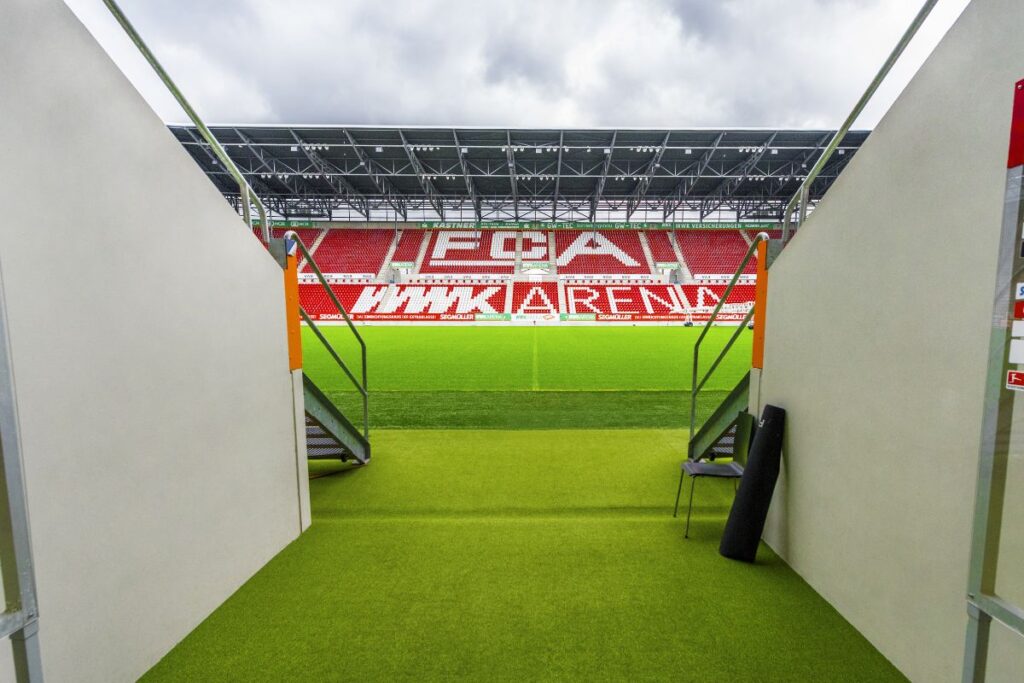
The WWK Arena, also known as Augsburg Arena, is a football stadium located in Augsburg, Bavaria, Germany. The stadium currently serves as the home ground for FC Augsburg and has a seating capacity of 30,660 with 19,060 seats and standing room for 11,034. WWK Arena was opened in 2009 and built with the possibility of future expansions in mind.
The stadium’s design allows for a second phase of construction, which could potentially increase its capacity to 49,000 spectators. While there is no concrete timeline for this expansion, it is an option that might be considered in the future depending on the growth of FC Augsburg and the demand for tickets.
One of the recent developments at the WWK Arena is the installation of LED lights by WWK, the insurance company that serves as the main sponsor and naming rights partner of the stadium. This partnership was recently extended until 2030, ensuring that WWK will continue to support the club and stadium for years to come.
Future plans for the WWK Arena are aimed at enhancing the experience of fans and spectators, as well as ensuring that the facility remains up-to-date with modern standards. As the home ground of FC Augsburg, the stadium has a significant role in the club’s growth and success, making it crucial to adapt and evolve to meet the needs of both the team and its supporters.
